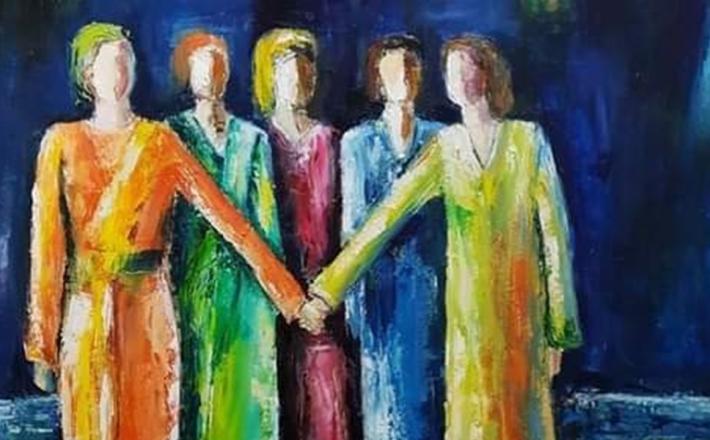Solidarity among women in politics in Sri Lanka: Potentials and challenges - Nadine Vanniasinkam and Viyanga Gunasekera
Source: Social Scientists’ Association Lanka
Introduction
Women politicians and political aspirants in Sri Lanka share certain patterns of marginalisation within patriarchal party and political structures which prevent them from entering and engaging in agentive politics. Women encounter barriers to party nominations and access to campaign finance when contesting and, if elected, freedom to address councils and submit proposals without being harassed. They also face challenges in access to infrastructure to carry out their political mandates. These barriers are framed by cultural and religious ideals about gender, sexuality, and the family that shape the national consciousness (Steans 2007) as well as entrenched patriarchal standards about political engagement and what it means to be a political leader.
Given these shared challenges, in this article, we ask whether the quota for women in local government can foster solidarity among women within parties and across party lines to address gender discrimination and increase women’s representation and participation beyond local politics. Or is the idea of solidarity among women politicians to further their shared interests far removed from the reality of their concerns? What would solidarity among women politicians at local level look like and (how) can this result in positive results for other women in politics and women in general? We attempt to unpack uniting and dividing factors through analysis of women’s wings in political parties.
Click here to read the full article published by Social Scientists’ Association Lanka.

Introduction
Women politicians and political aspirants in Sri Lanka share certain patterns of marginalisation within patriarchal party and political structures which prevent them from entering and engaging in agentive politics. Women encounter barriers to party nominations and access to campaign finance when contesting and, if elected, freedom to address councils and submit proposals without being harassed. They also face challenges in access to infrastructure to carry out their political mandates. These barriers are framed by cultural and religious ideals about gender, sexuality, and the family that shape the national consciousness (Steans 2007) as well as entrenched patriarchal standards about political engagement and what it means to be a political leader.
Given these shared challenges, in this article, we ask whether the quota for women in local government can foster solidarity among women within parties and across party lines to address gender discrimination and increase women’s representation and participation beyond local politics. Or is the idea of solidarity among women politicians to further their shared interests far removed from the reality of their concerns? What would solidarity among women politicians at local level look like and (how) can this result in positive results for other women in politics and women in general? We attempt to unpack uniting and dividing factors through analysis of women’s wings in political parties.
Click here to read the full article published by Social Scientists’ Association Lanka.